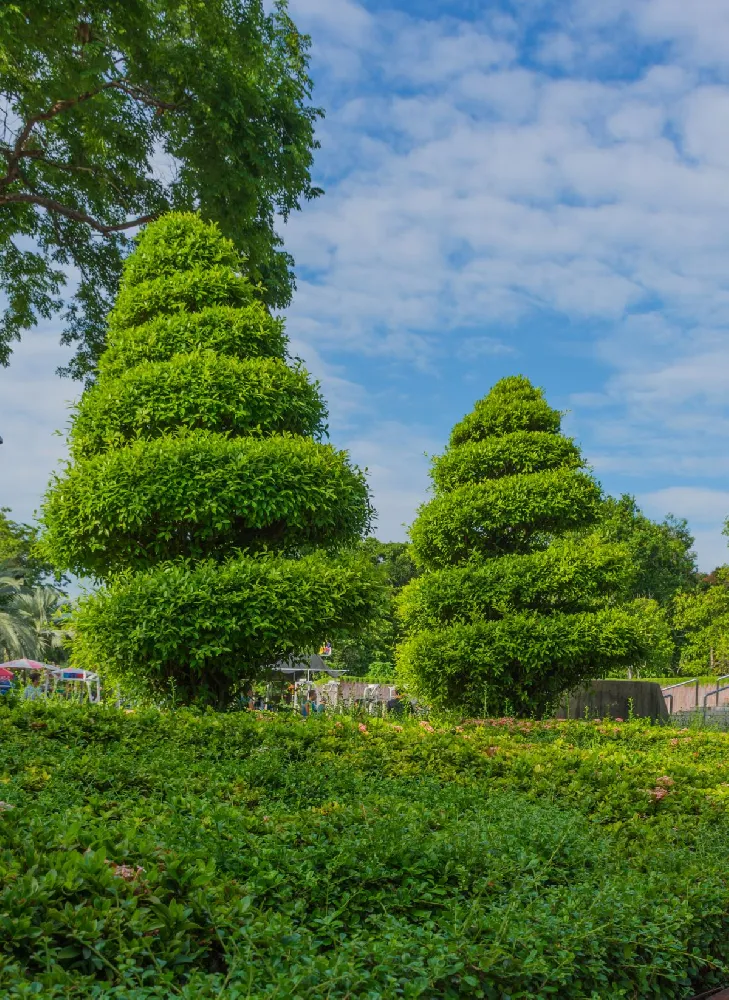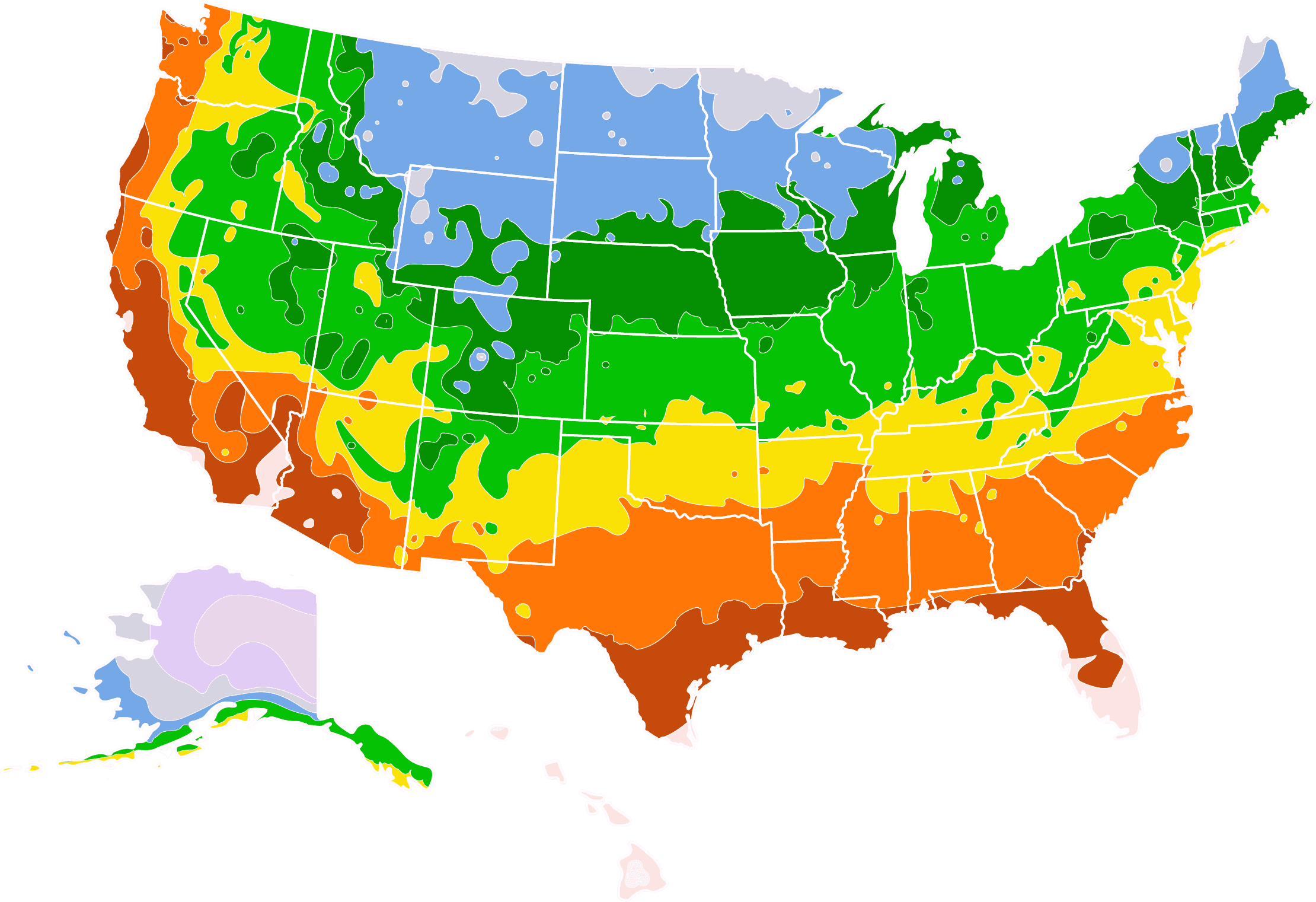- Home >
- Ornamental Plants >
- Green Velvet Boxwood Shrub
Green Velvet Boxwood Shrub for Sale - Buying & Growing Guide
- Ships in 1-2 days
- 1-Year Warranty Eligible
- Pots or accessories are not included unless specified in the product options.
Shipping Details:
Once your order is shipped, you’ll receive an email with a tracking number and estimated delivery date. Most orders ship immediately, but some items are seasonal and may only ship in spring or fall. These products are noted on the website.
The aptly-named Green Velvet boxwood, Buxus 'Green Velvet,' is a mid-sized shrub that adds a lush, velvety-green texture and presence to your garden. It naturally assumes a spherical shape, making it a great addition to formal garden settings. But it is also perfectly suited to casual landscapes, and it can easily be grown in a container. As an evergreen, its appeal is apparent year-round, and its cold-hardiness down to -20 degrees Fahrenheit means it can be grown throughout much of the continental U.S. But perhaps the best attribute of these appealing shrubs is that they are easy-care, needing no fussing or extra care to thrive. Here are a few more reasons to add Green Velvet boxwood to your garden:
- Green Velvet boxwoods are deer- and rabbit-resistant, though they provide safe habitat for songbirds.
- They are disease- and pest-resistant.
- They can be pruned into a formal hedge or other shapes as desired.
Plant Care
Sunlight

The Green Velvet boxwood does best in partial to full sun, with at least four hours of direct light a day.
Watering
This boxwood likes moist but not saturated soil — water weekly for best results, especially during hot weather.
Fertilizing

Feed your Green Velvet boxwood in spring with a 10-10-10 formula designed for landscape plantings.
Planting and Care
Planting instructions
Site your plant where it will get at least four hours of sun a day. At the southern end of its range, it will do best if it is in dappled or partial shade in the afternoons, as too much hot sun can burn the leaves. Unpot your boxwood, and tease out any encircling roots, which can girdle the shrub and slowly kill it. Dig a hole that is as deep as the root ball and twice as wide. Place the plant in the hole, spreading out the roots. While holding it upright and steady, fill in around the roots with topsoil, tamping down as you go to eliminate air pockets. Water thoroughly. Apply a 2- to 3-inch layer of an organic mulch, such as bark chips, around the root zone to conserve moisture and hinder weed growth.
Watering and nutrients
During its first year, water your Green Velvet boxwood twice a week unless you receive rain. The soil should be consistently moist, but not saturated. Once your shrub is established and growing well, water it weekly during times of heat or dry weather. Fertilize in early spring with a product designed for landscape trees and shrubs, preferably a 10-10-10 formula.
Pollination
Boxwoods have small, unnoticeable flowers in spring that contain both male and female reproductive parts. The flowers are attractive to pollinators such as bees and wasps, which do the heavy lifting of pollinating the flowers. Small berries result in seeds for the next generation. Boxwoods can also be propagated via cuttings.
Pruning
You can allow your boxwood to go unpruned, only removing dead, diseased, or damaged branches, which will result in a shrub with a softly rounded shape. It can also be pruned more aggressively to form a formal hedge or other shape. This should be done in spring after the danger of frost has passed.
Pests and diseases
There are a few insect pests that may appear on your Green Velvet boxwood. These include the boxwood leafminer, the boxwood mite, and boxwood psyllid. Spraying your bush with a stream of water may dislodge these insects, and horticultural oil may also be used to control them. Diseases of these shrubs include boxwood decline, a fungal disease, which can be deterred by giving your boxwoods room for circulation; and root rot, another fungal condition, which causes leaves to turn from dark to light green. Unfortunately, the roots are damaged by this disease, which usually results in plant death.
Achieving maximum results
One possible way to use your Green Velvet boxwood in your landscape or garden is to plant it in a container — picture two, for example, in terra cotta planters flanking your front door.Choose a planter for your boxwood that is roughly twice the size of the root ball, and use a good-quality potting mix. Keep in mind that container-grown plants may need more watering than those grown in the ground, especially if you’ve tucked your planter under the eaves of your home where it doesn’t get rain. Be sure to fertilize it regularly, and plan on freshening the soil and repotting your boxwood every three or four years.
FAQs
How big does the Green Velvet boxwood get?
Is the Green Velvet boxwood toxic?
Yes, the leaves and branches are toxic to dogs, cats, and horses. It's best to plant your boxwoods in a spot that can not be accessed by these animals.
Where can I grow the Green Velvet boxwood?
The Green Velvet boxwood can be grown anywhere the temperatures don't go below -20 degrees Fahrenheit. That includes USDA hardiness zones 5 through 8, which encompasses much of the continental U.S., stretching from southern New England down through northern Florida and west to the Pacific Northwest.
Compare Similar Products
You can't add more Product Name - Product size to the cart.
OK










